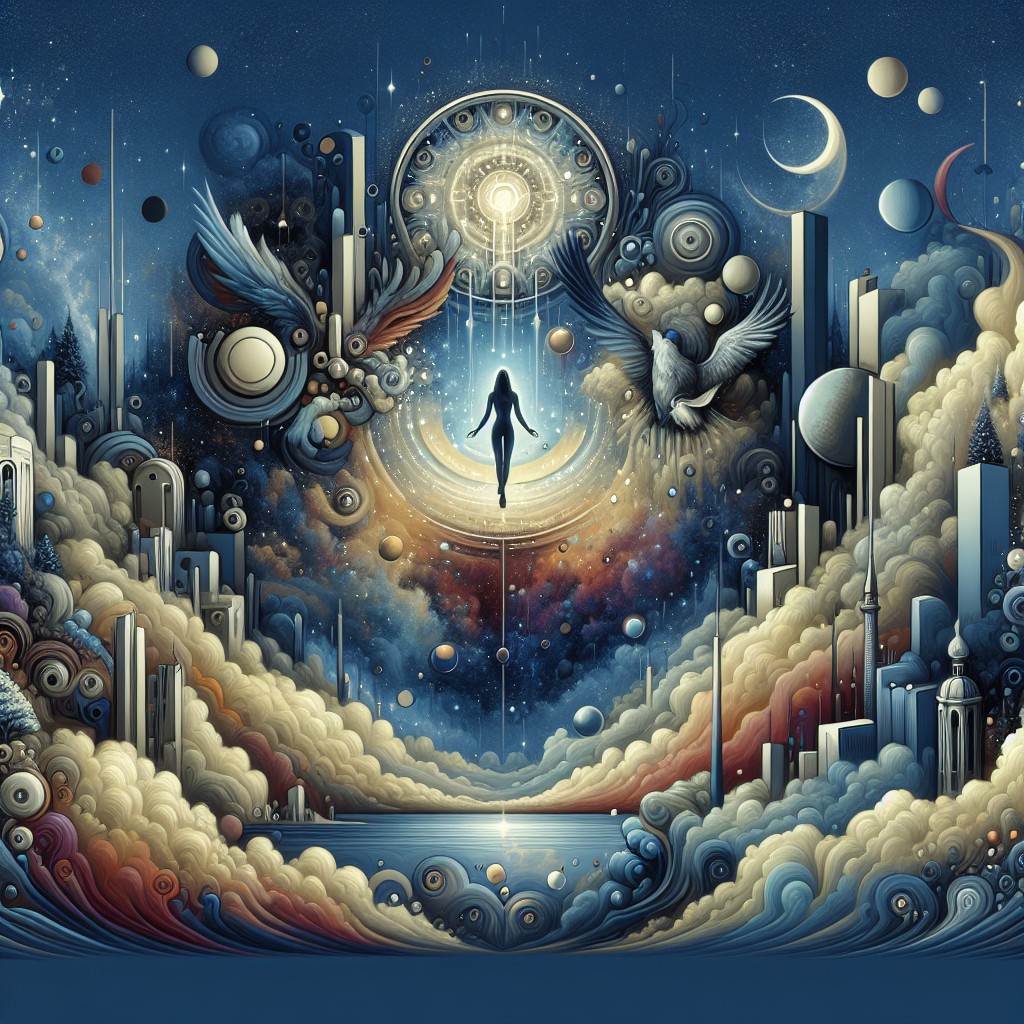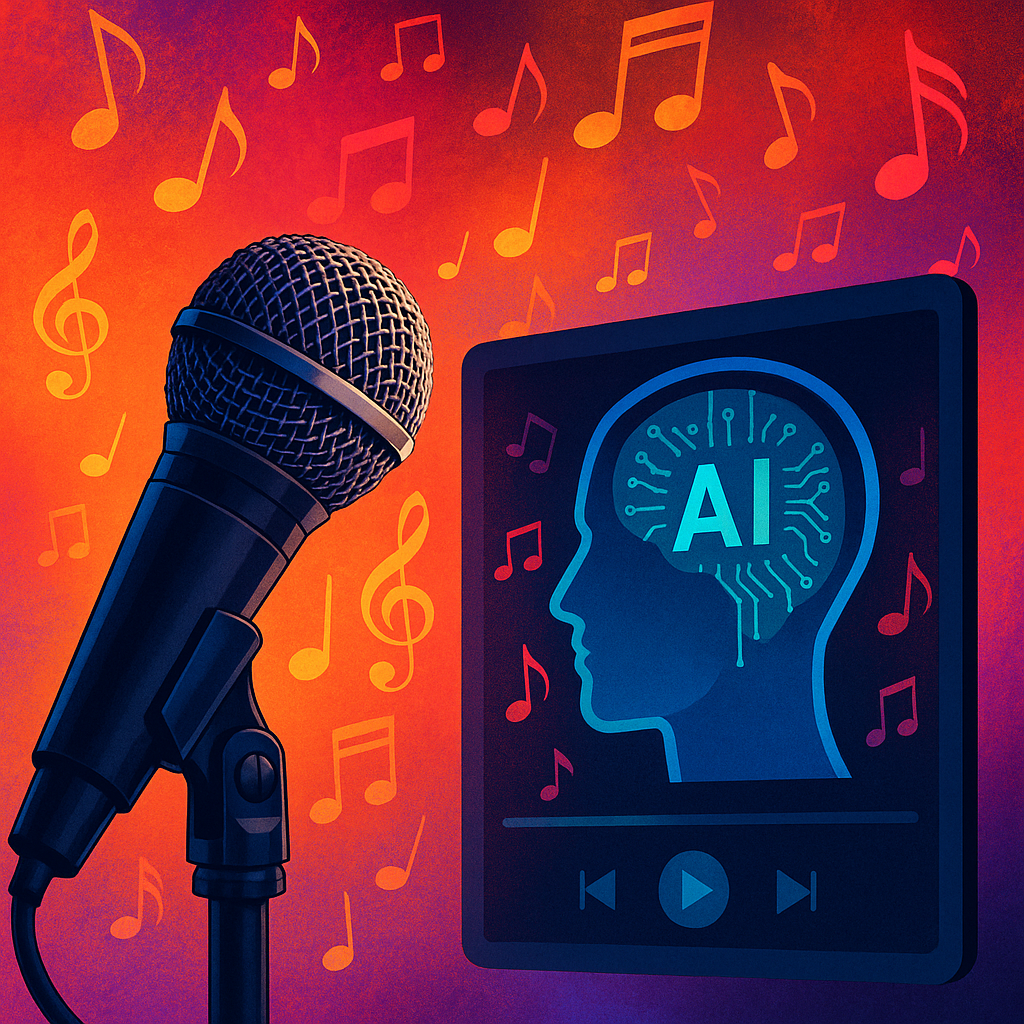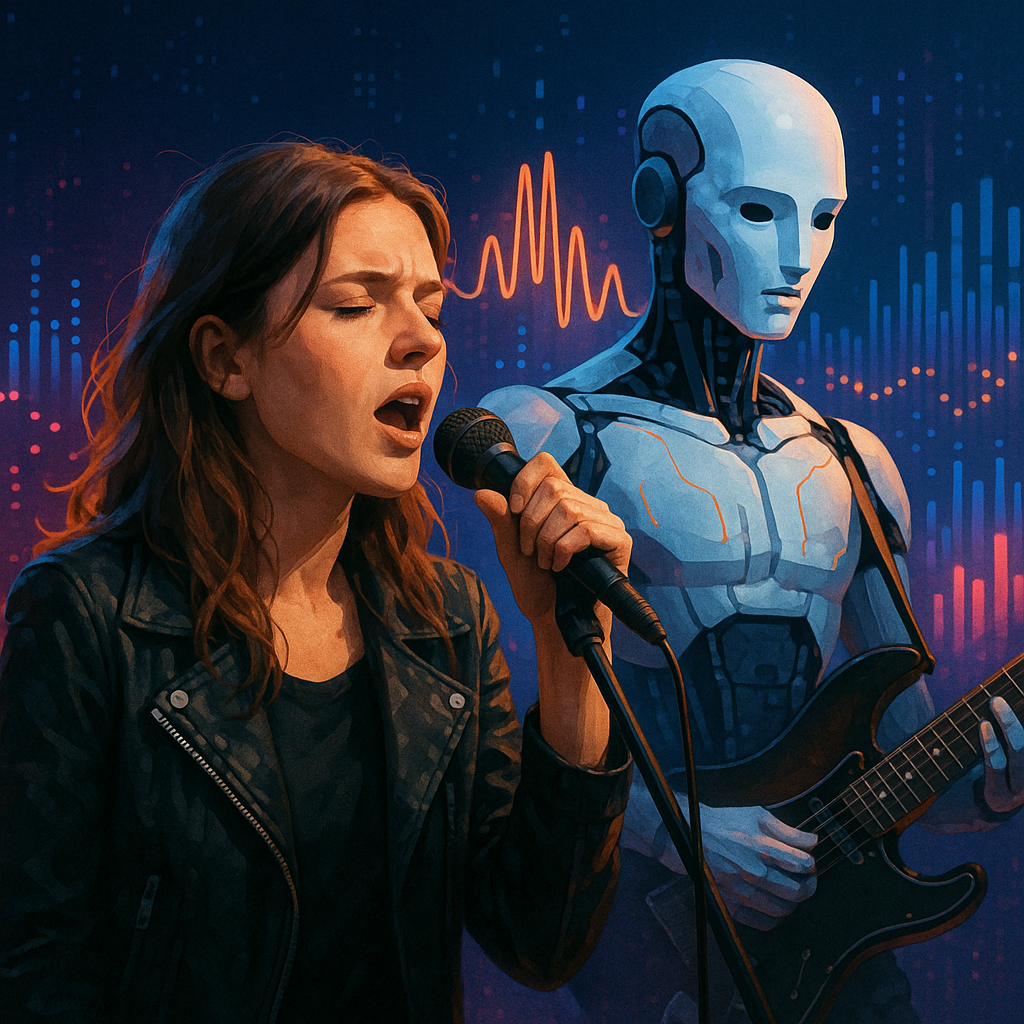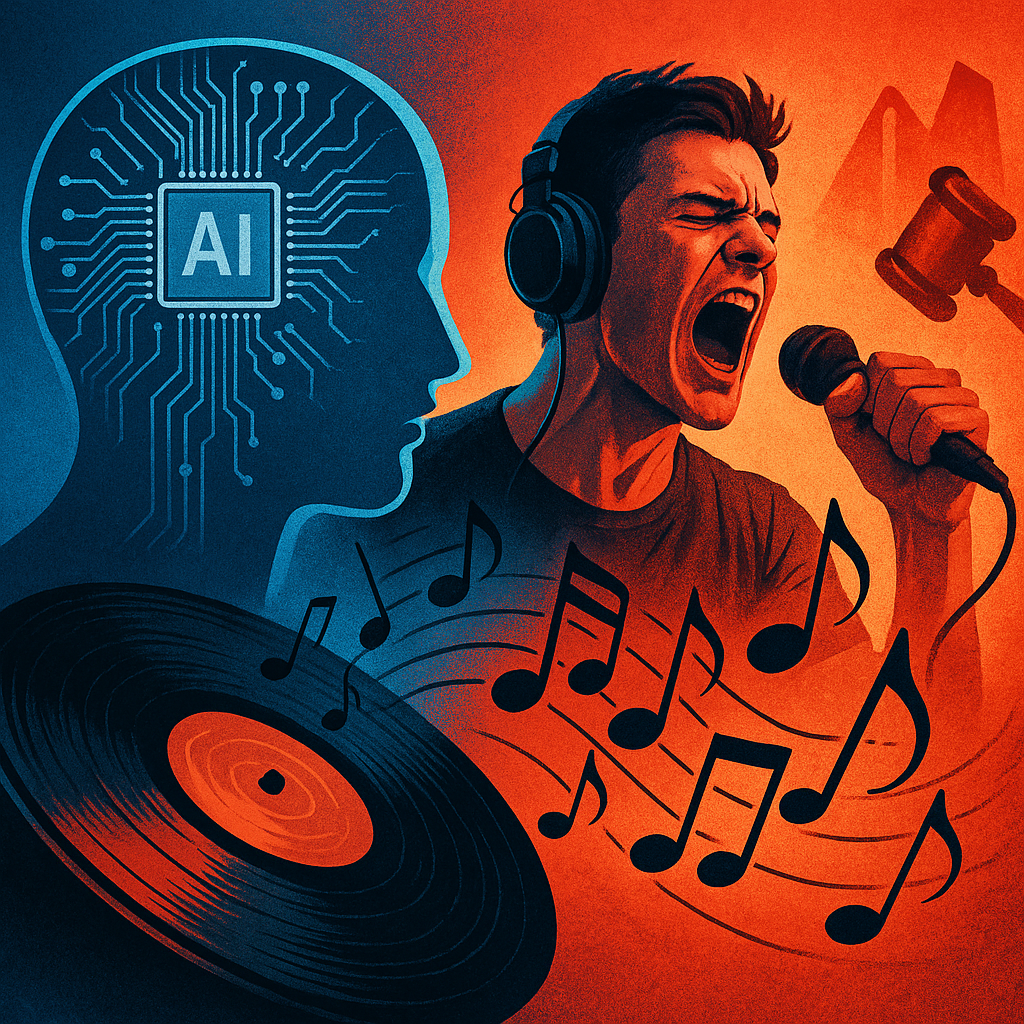Loading...
Technology
How AI Music is Redefining Creativity and Shaping the Future of the Industry
Explore how AI music is redefining creativity and transforming the music industry with innovative generative tools and disruptive market trends.
📅June 5, 2025
⏱️5 min read
👥News AI Music Team

AI-powered music creation tools are revolutionizing how artists compose, produce, and distribute their work
Related Topics
AI MusicArtificial IntelligenceMusic TechnologyMusic ProductionInnovationStreaming
Stay Ahead of the Beat
Check the news regularly to get exclusive AI music industry insights from the latest News AI Music.


